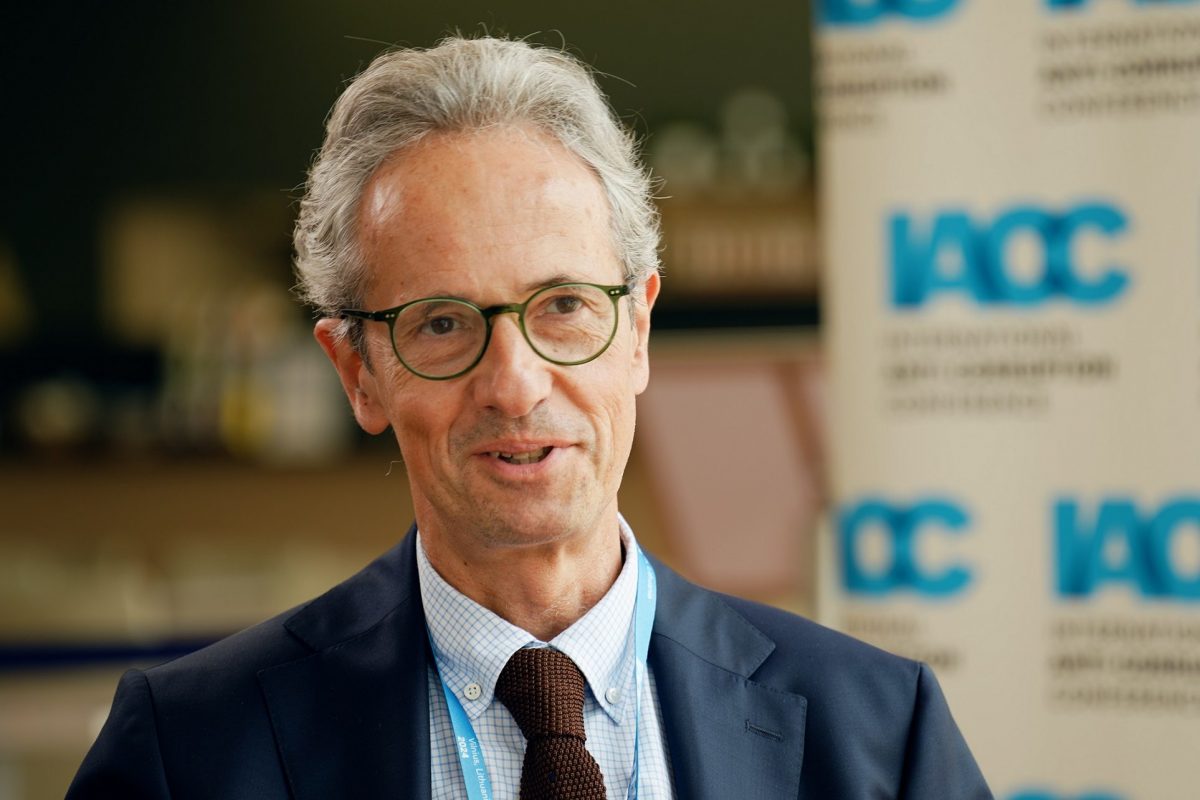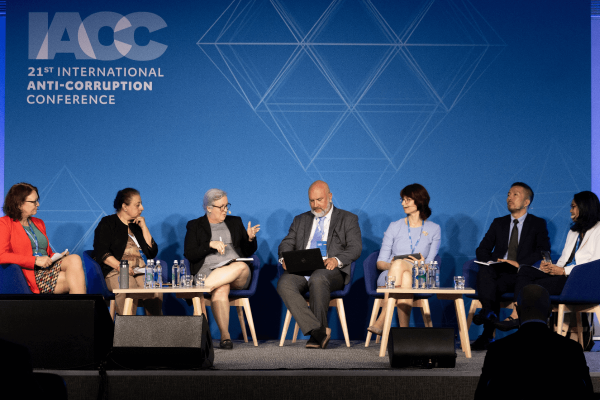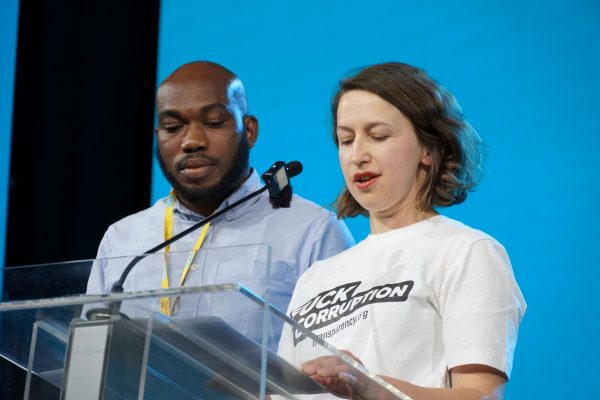This interview was carried out on 19 June 2024 during the International Anti-Corruption Conference (IACC) in Vilnius, Lithuania.
IACC Journalism Fellows: The world is at a turning point. In the age of misinformation, social media, cryptocurrencies and AI, is our capacity to hold the powerful to account diminishing?
François Valérian: Yes, we are at a turning point. We are not losing our capacity to hold power to account. What is missing is the political will to do so. Institutions should be robust enough to help us tackle corruption. We need governments determined to make these institutions function and to punish the corrupt. I see that happening in a number of countries.
For example, since the beginning of the war, Ukraine has made a lot of progress in building infrastructure to prosecute corrupt people and bring them to account. However, in most countries, it is not happening at the necessary level. The judicial system, like human resources and financial resources, is often captured by corrupt or criminal interests.
IACC Journalism Fellows: This year will see elections in over 50 countries affecting more than half the people on the planet. Yet officials whom populations know to be corrupt are winning elections. What does that mean? Is corruption becoming accepted as inevitable?
François Valérian: Individuals with money, both their own and public funds, stay in power by using state resources for their campaigns. This is not how it should function. We need monitoring of electoral campaigns. For example, Transparency International Serbia is monitoring electoral campaigns. It’s extremely important that, at this moment, the most important moment for democracy, citizens should be able to make their decisions without political power being for sale.
IACC Journalism Fellows: What measures are necessary to achieve this, apart from extensive monitoring?
François Valérian: Extensive monitoring and international cooperation are crucial. Governments should implement and enforce commitments made under the United Nations Convention against Corruption. Corrupt governments and officials should be sanctioned and prosecuted.
IACC Journalism Fellows: How do you see international cooperation going in terms of combating corruption?
François Valérian: There is cooperation between governments and civil society organisations, but not at the level we wish. Defeating secrecy is extremely important. Secrecy is the main weapon of corrupt leaders who hide their money and invest it elsewhere. We need beneficial ownership registries open to the public so that we can know who the ultimate beneficiaries of entities are.
This applies to all countries, including offshore centers. Banks have a major role in fighting the global economy of corruption, but the financial system is not responsive enough to these requirements.
IACC Journalism Fellows: Sanctions are increasingly being used as a tool for fighting corruption globally, seeking to prevent individuals and businesses from participating fully in the global economy. But corrupt actors often do business through proxies or export dual-use goods through jurisdictions where sanctions do not apply. Have sanctions created new corrupt practices that are harder to investigate and tackle?
François Valérian: Sanctions are better than nothing, but they are not working well enough. People can still hide behind legal entities in poorly regulated jurisdictions. We need global cooperation against corruption, similar to the cooperation against terrorism. Corruption is a deadly threat to democracy and freedom, and should be treated with the same resolve as terrorism.
IACC Journalism Fellows: What progress has been made in terms of asset recovery?
François Valérian: There have been some successes, such as frozen and confiscated assets. However, many individuals under sanctions have been able to evade their assets to other countries and escape sanctions, which is a concern.
IACC Journalism Fellows: What is Transparency International’s stance on the situation in Gaza?
François Valérian: We have chapters in Palestine and Israel, both fighting corruption in their own countries. We have a deep concern for our colleagues in Gaza, who are living through extremely difficult humanitarian conditions. Transparency International demands an immediate ceasefire in Gaza, the release of hostages, and open borders for a corruption-free flow of extensive humanitarian aid to people in dire need of it.


